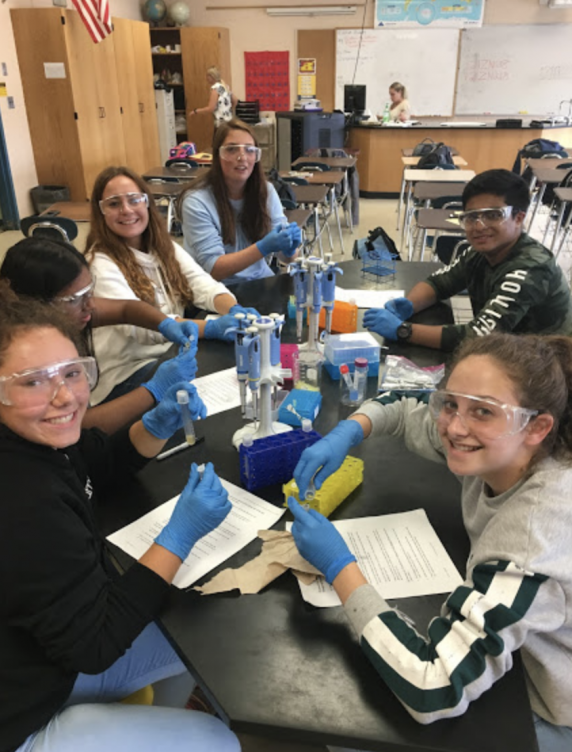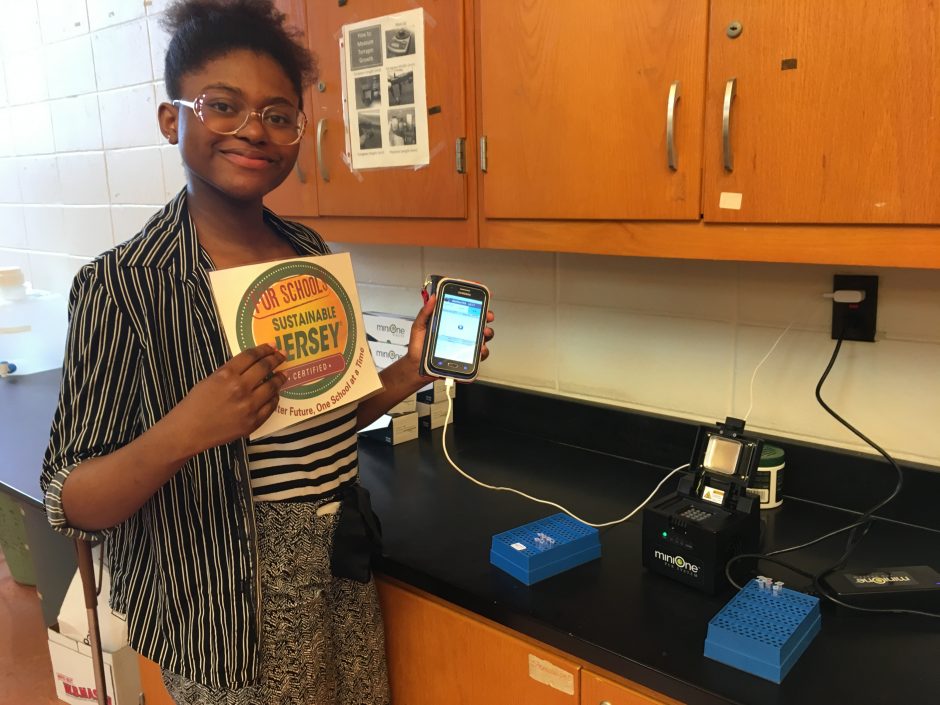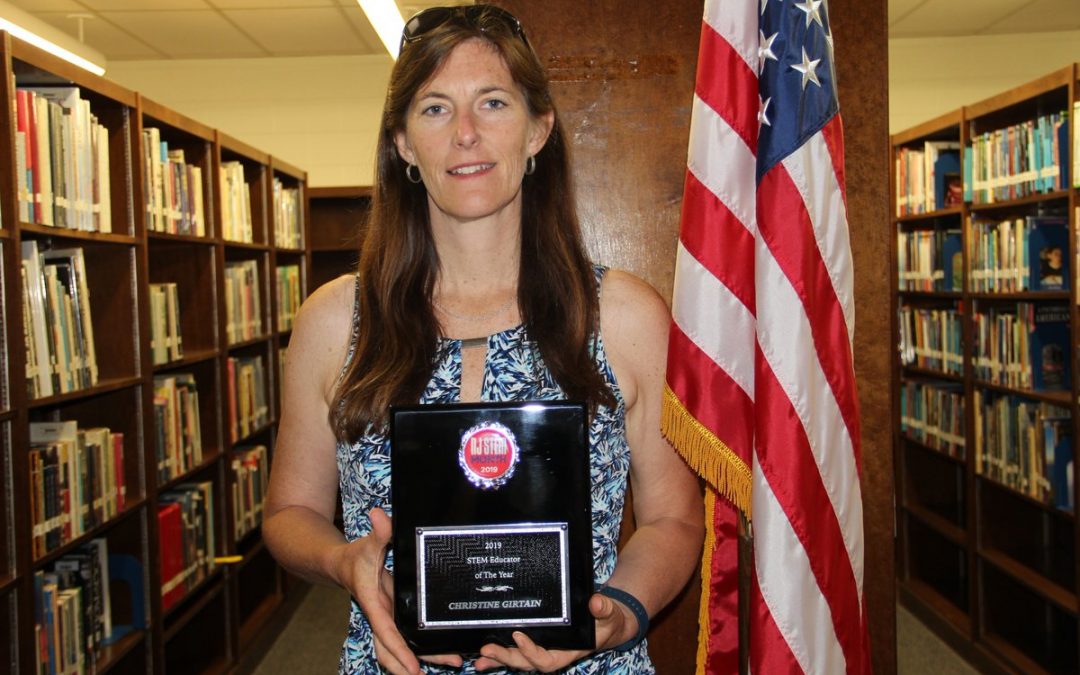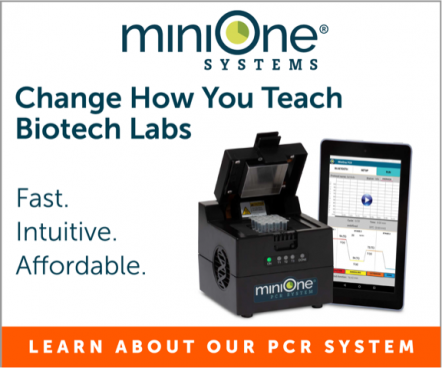My name is Christine Girtain and I teach a 3-year Authentic Science Research Course in 2 of the 3 public high schools in Toms River, New Jersey. The course is a dual credit course through SUNY Albany’s University in the High School Program. Students can earn up to 12 college credits for their research work.
Here is a bit about my path to becoming the 2019 New Jersey STEM Teacher of the Year.
- Attend conferences and join professional societies
- Continue learning
- Write grants
- Network with PhD, educators and anyone who supports STEM and can help you learn
Camp Invention®
I am constantly seeking training to better serve my students and my own son & daughter. In 2014 while presenting at the NJ Science Teachers Convention (NJSTC) as an executive board member of The New Jersey Earth Science Teachers Association. I was introduced to Camp Invention® , a nationally-acclaimed, hands-on summer STEM program. I was very eager to sign my own children up for Camp Invention®, but the nearest site was an hour away. The Camp Invention® rep asked if I would like to interview to be a director of my own camp in Ocean County, NJ and I jumped on the opportunity. My friend and fellow AP teacher, Toms River HS South Charlene Wallace, was eager to start a new STEM adventure with me. Our own kids got a great learning opportunity and we brought a high level STEM experience to our county making it easier for parents to access. I am happy to say there are now 5 Camp Invention® sites in Ocean County.
This year’s camp was titled Supercharged and included a module called Farmtech. Students were introduced to the concept of gel electrophoresis. They were given gels, added color dyes and watched the dye diffuse through the gel. Our Toms River camp was lucky to be able to add the MiniOne® to the students’ experience as a 7th grade Leadership Intern in Training demonstrated a real gel run with DNA ladder and taught the older students how to micropipette sample loading dye into the premade practice gels MiniOne supplies.
The Rutgers Waksman Student Scholars Program
Dr. Missy Holzer, AP Environmental teacher at Chatham HS & I are on the executive board for NJESTA. That professional relationship enabled Charlene Wallace and I to be lead teachers on an NSF grant that investigated instructional scaffolds that promote critical evaluation and plausibility appraisal of controversial and/or complex Earth and space science topics. While presenting at NSTA 2015 in Philadelphia on Model Evidence Link Diagrams with Temple University’s Dr. Doug Lombardi & Dr. Janelle Bailey, I attended a workshop given by Rutgers University that introduced the Rutgers Waksman Student Scholars Program (WSSP), which offers an opportunity for high school students and their teachers to work together to conduct and publish authentic research projects in molecular biology and bioinformatics.

Toms River High School North students working on the Waksman Student Scholars program.
My students have been working on isolating, sequencing and identifying proteins in Landoltia punctata, aka Duckweed, a plant being researched by the US government as a possible replacement for corn as a biofuel. 2016- present, my students have learned important hands-on lab skills and how to use BLAST on NCBI.org. While at WSSP I learned about The Wolbachia Project from another teacher and made long lasting professional connections with two other NJ teachers, Nishita Desai & Kathy Benton, both fabulous NJ Science Teachers.
Introduction to The MiniOne Electrophoresis System
In Oct of 2017 I met Richard Chan of MiniOne Systems at the NJ Science Teachers Convention and my world was opened to the ease of use of MiniOne. Students can microwave GelCups and pour gels quickly to save precious time in the lab. The magnetic triggered amber hood protects my students from having the units on while the hood is off, and gels run quickly. My students love that they can rest their phones on top of the MiniOne and safely take photos/videos of their gels. Richard also introduced me to Sara Bordenstein at Vanderbilt University and Whitney Hagins BioTeach Instructor and Curriculum Specialist for MassBioEd, so I could learn about the Wolbachia Project. Wolbachia is a bacteria found in arthropods and is being used as a sustainable means of controlling mosquito populations and decreasing the spread of Dengue and Zika.

Christiana Ntim, Toms River HS South student, researching Wolbachia
The winter of 2018 I won a grant for a $10,000 sponsored by NJEA through Sustainable Jersey for Schools. I purchased supplies, 10 MiniOne Electrophoresis units and 4 MiniOne PCR Systems to run a 3-day Wolbachia workshop for my research students. My students are taking what they have learned about Wolbachia and applying it to their own research projects, collecting macroinvertebrates from a stream health assessment and DNA barcoding them to see if they have Wolbachia. I was able to attend the International Wolbachia Conference in Salem, MA and meet Dr. Seth Bordenstein and Sara Bordenstein of The Wolbachia Project thanks to a full conference & travel sponsorship by MiniOne.
International Wolbachia Project
In the summer of 2018 I attended an amazing week long Biotech training at UMASS Amherst with my colleague, Toms River HS South AP Bio teacher Michele Martini sponsored by MASSBIOEd. I got to know Israeli teacher, Dr. Pirchi Waksman (no relation to the Rutgers program) and we decided to have our students collaborate on an International Project comparing the prevalence of Wolbachia in mosquito samples in NJ to those in Givataym, Israel. Our students collaborated on a group PPT using WhatsApp to communicate. The culmination of the project had our students co-presenting their PPT to scientists at Vanderbilt, in Israel, and in Switzerland during a video conference. Students were asked questions about the section they presented and then the entire group was asked to form a group answer to a question from a diagram from one of the articles in their review of literature.
2019 New Jersey STEM Teacher of the Year Award
NJ STEM PATHWAYS NETWORK honored me with the 2019 NJ STEM Teacher of the Year Award. The NJSPN aims to attract, cultivate and retain a 21st century workforce in New Jersey, ensuring the state remains a top global competitor in STEM industry and continues its rich history of innovation.
MiniOne Systems have played a large role in my path to exposing more students to biotech. I was able to run a Biocoding Camp with funds from the Office of Naval Research. Students learned Python and wrote code to analyze DNA sequences from NCBI. Middle school students attended World of Enzymes Camp this summer with Cold Spring Harbor’s DNA Learning Center. Two of our TR science teachers, Leslie Withstandly & Emily Schmidt were trained so we can run the camp ourselves next year. MiniOne donated $2000 to offset registration costs for students that needed full or partial scholarships. Brick Twp AP Bio Teacher Ken Lynch & I ran a DNA Barcoding Camp this summer and the kids loved taking photos of their gels as they ran. I am very thankful to MiniOne for their support of STEM.



